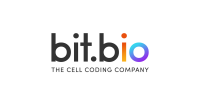About Bit.bio
Bit.bio: Revolutionizing Stem Cell Reprogramming with Opti-Ox™ Technology
Bit.bio is a pioneering biotechnology company that has developed a groundbreaking technology called opti-ox™, which combines synthetic and stem cell biology to enable the precise, efficient and consistent reprogramming of stem cells. This innovative approach has the potential to transform the field of regenerative medicine by providing a reliable source of high-quality cells for research, drug discovery and therapeutic applications.
Stem cells are unique cells that have the ability to differentiate into various types of specialized cells in the body. They hold great promise for treating a wide range of diseases and injuries, from diabetes and heart disease to spinal cord injuries and Parkinson's disease. However, one major challenge in using stem cells for these purposes is their variability - they can be difficult to control or manipulate in order to produce specific types of cells.
This is where Bit.bio's opti-ox™ technology comes in. By combining synthetic biology techniques with stem cell biology, Bit.bio has developed a way to precisely control the differentiation process of stem cells. This means that they can produce large quantities of specific types of differentiated cells - such as neurons or muscle cells - with high efficiency and consistency.
The key innovation behind opti-ox™ is its use of small molecules called "optogenetic switches" that can be used to control gene expression in living organisms. These switches are engineered into stem cell lines using synthetic biology techniques, allowing researchers at Bit.bio to precisely control when certain genes are turned on or off during differentiation.
This level of precision allows Bit.bio's scientists to create highly pure populations of differentiated cells with specific functions - something that was previously very difficult if not impossible using traditional methods. For example, they have already demonstrated their ability to create functional motor neurons from human pluripotent stem cells using opti-ox™ technology.
Bit.bio's approach has several advantages over other methods currently used to produce differentiated cells. Firstly, it is much faster and more efficient - they can produce large quantities of cells in a matter of days rather than weeks or months. Secondly, it is highly reproducible - the same process can be used to create identical populations of cells every time. Finally, it is scalable - they can produce large quantities of cells for use in research or therapeutic applications.
Bit.bio's opti-ox™ technology has already attracted significant interest from the scientific community and investors alike. In 2020, they raised $41.5 million in a Series A funding round led by new investor Atomico, with participation from existing investors including Silicon Valley-based DCVC (Data Collective) and Notion Capital.
The company was founded in 2016 by Dr Mark Kotter, a neurosurgeon and stem cell biologist who previously worked at the University of Cambridge and Harvard Medical School. Since then, Bit.bio has grown rapidly to become one of the leading players in the field of synthetic biology and regenerative medicine.
In addition to their work on stem cell reprogramming using opti-ox™ technology, Bit.bio is also developing other innovative approaches to synthetic biology that have potential applications across a range of industries. For example, they are working on creating "living materials" that could be used for everything from biodegradable packaging to self-healing concrete.
Overall, Bit.bio's opti-ox™ technology represents a major breakthrough in stem cell reprogramming that has the potential to transform regenerative medicine as we know it today. With its combination of precision engineering and cutting-edge science, this innovative approach could pave the way for new treatments for some of humanity's most devastating diseases and injuries - making Bit.bio one company worth watching closely over the coming years!
